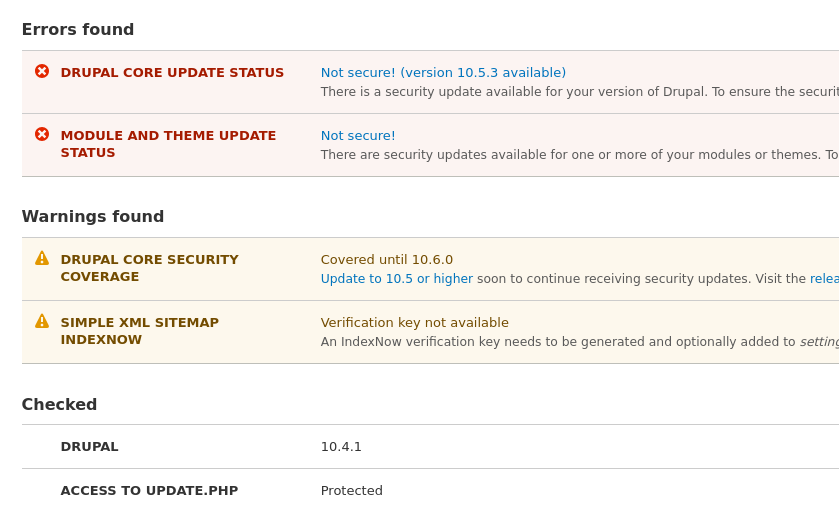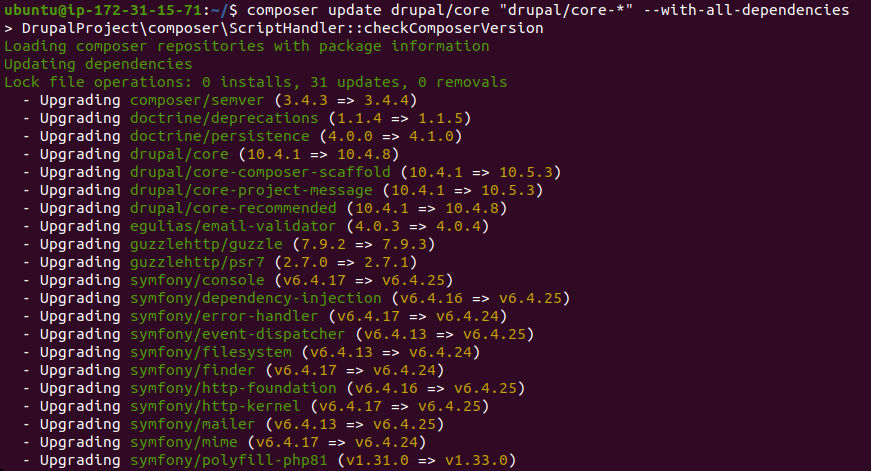
Introduction
Keeping your Drupal site secure and stable requires regular core updates. In this guide, you’ll learn how to update only the Drupal core to the latest version—without affecting contributed modules or themes—using Composer and a few essential maintenance steps.
Step 1: Check Drupal core version and create a backup
Before updating, check your current Drupal core version to confirm what release you’re running.
Always create a full backup of both the database and files so you can quickly restore the site if something goes wrong during the update.
Instructions for creating a full site backup
Check current version of installed Drupal core
Step 2: Update Drupal core
Updating Drupal core only is essential to apply security patches, bug fixes, and performance improvements while keeping contributed modules and themes stable.
The process involves running composer update command, applying database updates, and finally clearing caches to ensure the site runs smoothly.
Update Drupal core to latest available version

Step 3: Run database updates
When Drupal core or modules are updated, the database schema may change—new tables, fields, or indexes can be added, and existing structures modified. Running the database update process (/update.php or drush updb) applies these changes so the code and database stay in sync.
Skipping this step can lead to errors, broken functionality, or data loss.
For convenience we included the Drush commands necessary to complete an update.
Run Drush command "updb" to process required database updated

Step 4: Final prepare, Cache Clear and Rebuild
After updating Drupal, clearing caches ensures the site loads the latest code, configuration, and templates.
Cached data may reference outdated code or database structures, causing errors or unexpected behavior.
Clear and rebuild Drupal check, this operation is required after fully completed update process.
Conclusion
This article details how to update only the Drupal core using Composer. It covers creating backups, restricting dependency changes, running composer command and verifying site stability to avoid unintended module or theme updates.
